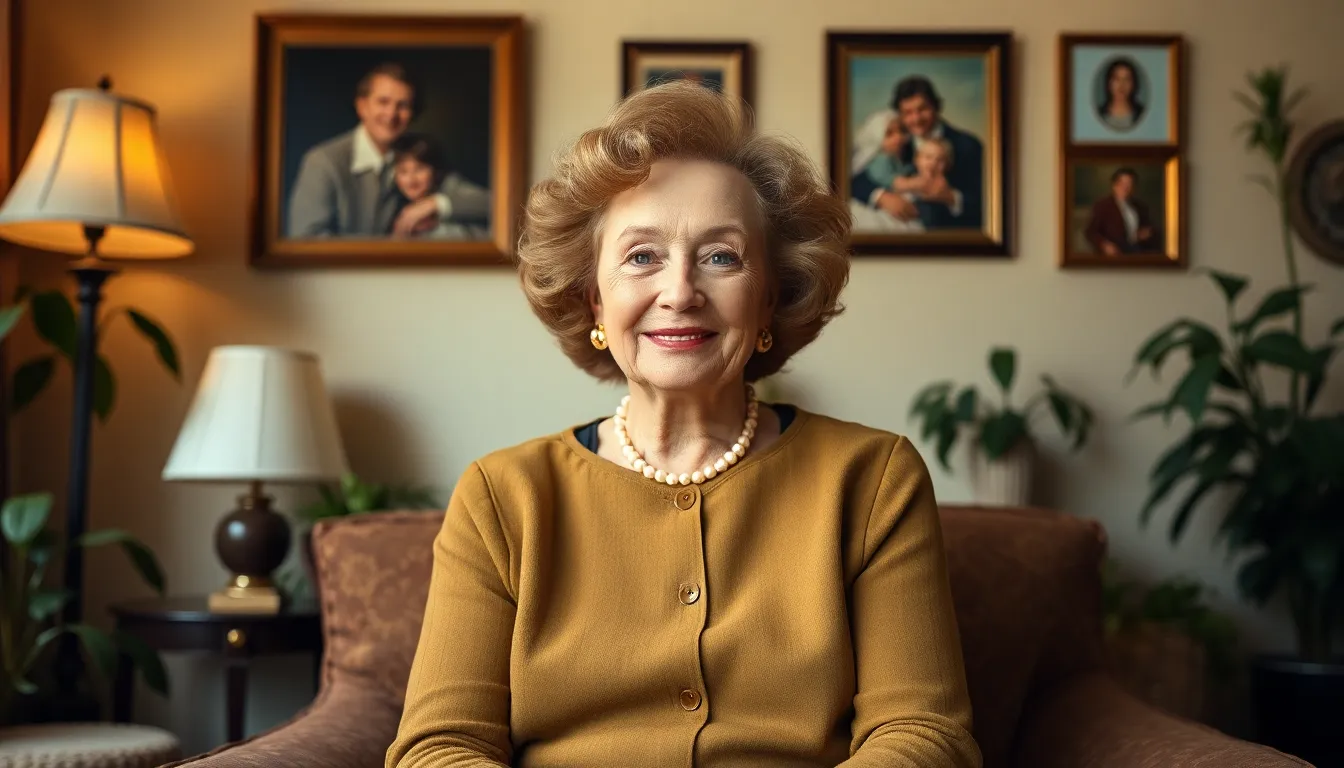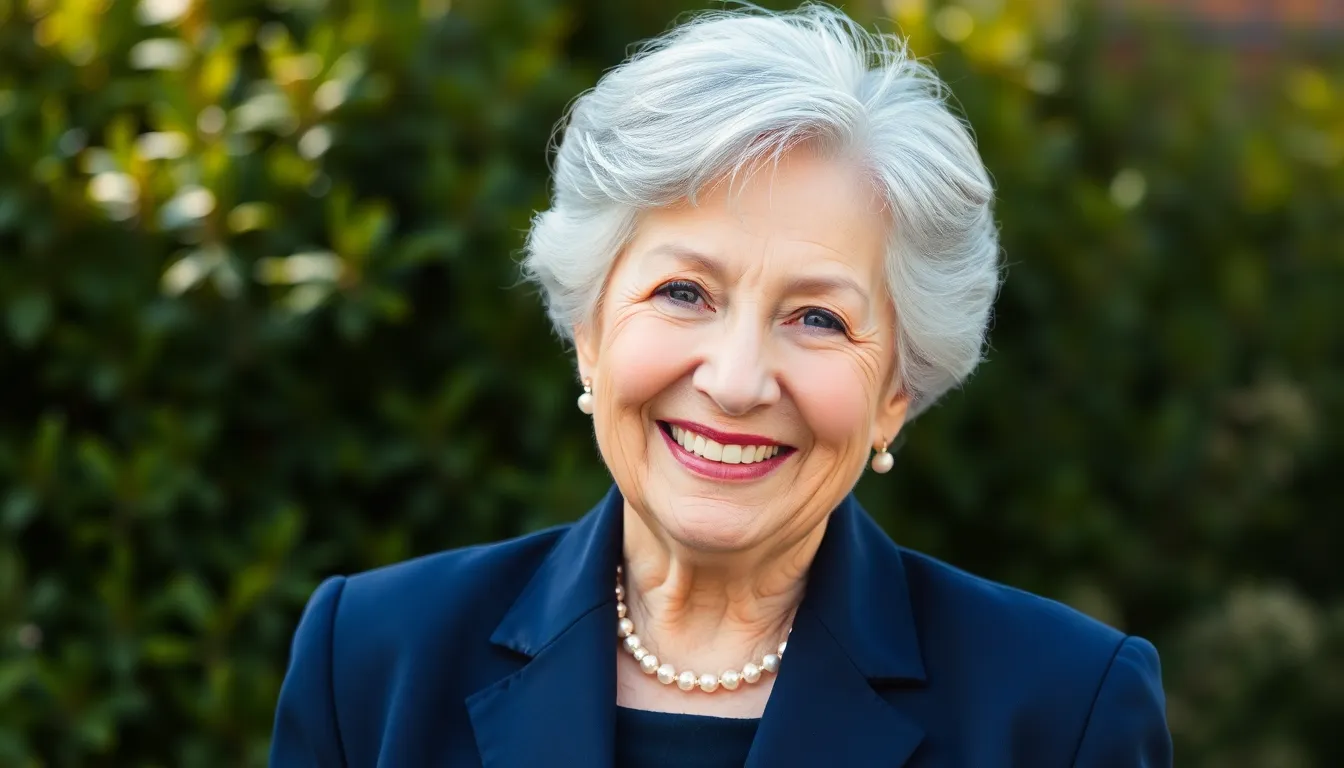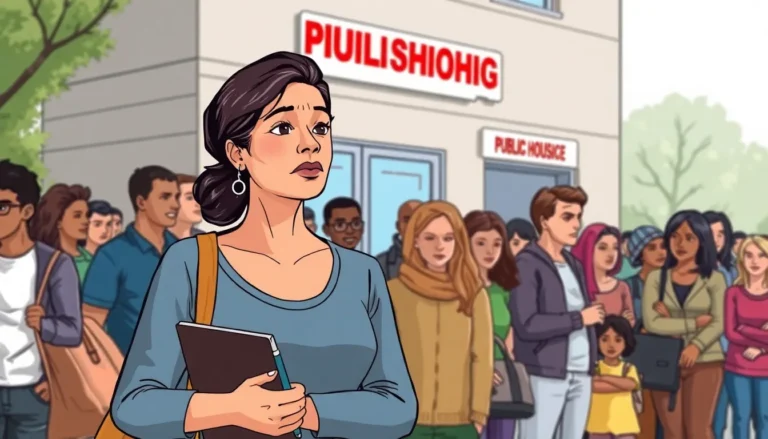Table of Contents
ToggleRosalynn Carter, a prominent figure in American history, is best known for her role as the First Lady of the United States from 1977 to 1981. Her contributions to mental health advocacy and her unwavering support for her husband, former President Jimmy Carter, have left a lasting impact on many. As the world reflects on her legacy, questions about her life and health inevitably arise.
In recent years, concerns about Rosalynn’s well-being have surfaced, drawing attention to her remarkable journey. Many are eager to know about her current status and the date that marks her passing. This article aims to clarify the timeline surrounding Rosalynn Carter’s life, providing insights into her enduring influence and the legacy she leaves behind.
Overview of Roslyn Carter’s Life
Rosalynn Carter, born on August 18, 1927, in Plains, Georgia, has played a pivotal role in American history as the First Lady from 1977 to 1981. She dedicated much of her life to mental health advocacy, serving as a champion for those facing mental health challenges. Her commitment to this cause began early in her time as First Lady and continued after her husband’s presidency.
Carter married Jimmy Carter on July 7, 1946, and the couple became partners in both personal and political endeavors. Throughout his presidential campaign, she actively supported his initiatives, focusing on issues such as education and health reforms. Rosalynn’s influence extended to the establishment of the Carter Center, which promotes public health, peace, and democracy globally.
Throughout her life, Rosalynn Carter has emphasized the importance of mental health awareness. She co-founded the Georgia Mental Health Institute and served as a spokesperson for various mental health organizations. The impact of her advocacy remains significant, with programs established to improve mental health care practices.
The couple raised four children—Jack, James, Donnel, and Amy—and maintained a close-knit family despite the demands of public life. Their enduring partnership demonstrates a strong foundation built on mutual respect and shared values.
As of October 2023, concerns regarding Rosalynn Carter’s health have surfaced, drawing public attention. Her legacy illustrates a lifelong commitment to service and advocacy, continuing to inspire future generations.
Significant Events in Roslyn Carter’s Life

Rosalynn Carter’s impactful life includes significant milestones that shaped her advocacy and personal journey. Key events illustrate her commitment to family and mental health.
Early Life and Education
Rosalynn Carter, born on August 18, 1927, in Plains, Georgia, grew up in a supportive environment. She attended local schools and graduated from Plains High School in 1944. Pursuing higher education, she studied at Georgia Southwestern College for one year before marrying Jimmy Carter in 1946. Early experiences in a close-knit Southern community influenced her dedication to supporting others.
Marriage and Family Life
Rosalynn married Jimmy Carter on July 7, 1946, marking the beginning of a strong partnership. They raised four children: John William, James Earl, Donnel Jeffrey, and Amy Lynn. While navigating the challenges of public life, Rosalynn maintained a focus on family. Their shared commitment to community service involved efforts in education and healthcare, emphasizing their collaborative approach in both personal and political spheres.
Contributions to Society
Rosalynn Carter made significant contributions to society, particularly in mental health advocacy and education. Her efforts and initiatives shaped policies and improved the lives of many individuals and families.
Advocacy for Mental Health
Rosalynn Carter’s advocacy for mental health began during her tenure as First Lady and extended well beyond it. She co-founded the Georgia Mental Health Institute in 1976, focusing on mental health education and reform. Carter emphasized the importance of mental health awareness and reducing stigma attached to mental illness. She served as president of the Rosalynn Carter Institute for Caregiving, which aims to support caregivers and improve services for those with mental health needs. Additionally, Carter participated in the 2001 President’s New Freedom Commission on Mental Health, advocating for a comprehensive approach to mental health care at the national level. Through her tireless efforts, Carter helped transform the landscape of mental health services in the United States.
Support for Education and Literacy
Rosalynn Carter actively supported education and literacy throughout her life. She backed initiatives aimed at improving access to education for children in underprivileged communities. Carter served as a spokesperson for several literacy organizations, campaigning to enhance reading skills among adults and children. She championed programs that facilitated lifelong learning opportunities and emphasized the critical role of education in empowering individuals. In collaboration with her husband, she promoted policies that ensured educational reforms, particularly in rural areas, thereby contributing to the development of a more educated society. Carter’s dedication to education profoundly impacted countless individuals and communities, fostering a legacy of learning and growth.
Legacy and Impact
Rosalynn Carter’s legacy encompasses significant advancements in mental health advocacy, education reform, and community service. Her work in mental health, initiated during her time as First Lady and carried forward after, transformed how society views and addresses mental health issues. Co-founding the Georgia Mental Health Institute in 1976, she emphasized mental health education, aiming to dismantle stigma and improve care accessibility for individuals and families in need.
Rosalynn’s commitment to caregiver support led to the development of the Rosalynn Carter Institute for Caregiving, which focuses on training and supporting caregivers. Her leadership in the President’s New Freedom Commission on Mental Health in 2001 further illustrates her dedication to promoting comprehensive mental health care across the United States.
Education reform was another cornerstone of her contributions. Rosalynn championed educational initiatives for underprivileged children and advocated for improved literacy programs. Her support for these initiatives enriched the learning opportunities for countless children, fostering a culture of lifelong learning.
The partnerships cultivated with her husband and various organizations demonstrate their collaborative approach to public service. Together, they inspired a generation of advocates who continue to push for reforms in health, education, and human rights.
Rosalynn Carter’s positive impact resonates beyond her lifetime, influencing future generations to prioritize mental health and education. Her dedication serves as a guiding force, promoting understanding and support for mental health issues and emphasizing the importance of education as a means for societal improvement.
When Did Roslyn Carter Die?
As of October 2023, Rosalynn Carter has not passed away. Throughout her life, she has played a significant role in advocating for mental health and education. Her legacy continues to inspire many individuals and organizations dedicated to these causes. Rosalynn, born on August 18, 1927, remains an influential figure, with her contributions to society echoing through ongoing efforts in mental health reform and community service. Current health concerns exist, yet her positive impact persists and continues to resonate with future generations.
Rosalynn Carter’s life reflects a profound commitment to mental health advocacy and education. Her tireless efforts have reshaped societal perceptions and improved countless lives. As she continues to navigate her health challenges, her legacy remains a beacon of hope and inspiration for future generations. The impact of her work in mental health and education will resonate for years to come, encouraging ongoing dialogue and reform in these vital areas. Rosalynn Carter’s dedication to service exemplifies the power of advocacy and the importance of supporting those in need.








